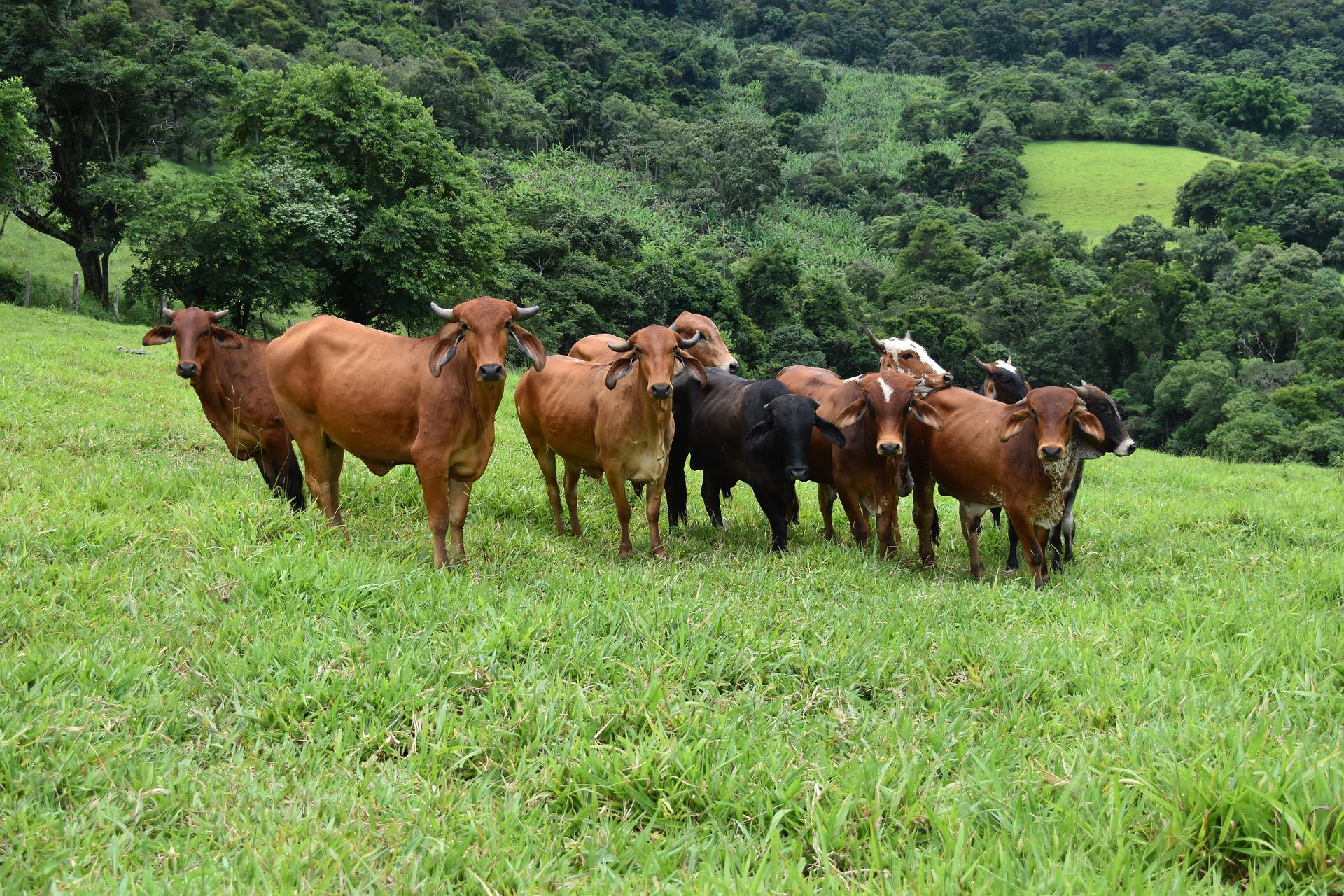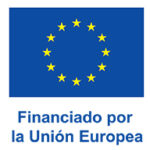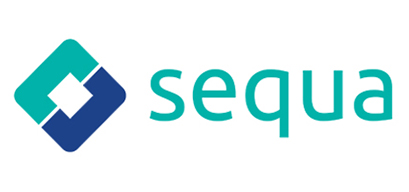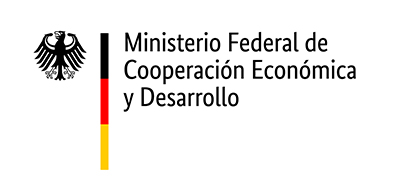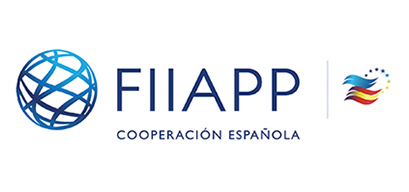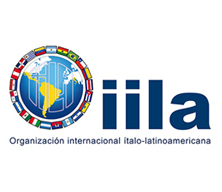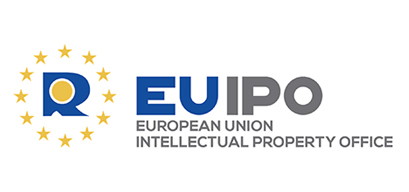Brasilia, 19 July 2022. The AL-INVEST Verde programme, as a part of the Component 2 AL-INVEST Verde, in collaboration with the Amazon Environmental Research Institute (IPAM), has organised a series of technical dialogues to analyse the challenges, opportunities and future efforts for the sustainability and traceability of the meat and leather value chains in Brazil. The objective of this initiative, financed by the European Union (EU), is to contribute to the identification and promotion of good practices and partnerships between different stakeholders, due to the great importance of these sectors in combating climate change and promoting environmental policies. The opening roundtable was held on 2 and 3 December, followed by three dialogues. The final event will be held in September.
- 1st technical dialogue - "Increasing productivity in a sustainable way" with due diligence (17.03.2022)
Held on 9 March 2022, the first "Technical Dialogue on Sustainability and Traceability of the Meat and Leather Value Chain". focused on the role of due diligence in the regularisation of meat and leather value chains. The dialogue brought together, in virtual format, more than 40 relevant actors, representing the Brazilian public sector (at federal and sub-federal level), the European Commission, international organisations, the meat and leather value chain (meat processors, retailers, importers), certification agents, academia and civil society from Europe and Brazil.
In this first technical dialogue, participants shared their knowledge on the challenges and opportunities of applying due diligence in the meat and leather value chain as a tool to improve sustainability and reduce deforestation. After an introduction on the due diligence process and recent regulatory developments in the EU and Brazil, the relevance and impact of the due diligence process in these value chains and possible channels for cooperation were discussed.
The participants highlighted the relevance of this issue for the livestock economy and the commitments to mitigating climate change and reducing deforestation. They stressed the importance of understanding the origins and complexity of the problem of deforestation in Brazil, as well as the need to public-private partnerships for the implementation of traceability systems to trace products from the farm to the consumer. The dialogue also focused on how the due diligence tool should be adapted to the specific conditions of each value chain and on the importance of adopting measures that incentivise the agricultural sector to increase productivity while protecting native forests.
The overall objective of this initiative is to contribute to the identification and promotion of collective practices and partnerships among key stakeholders for the sustainability of the beef and leather value chain.
Download the executive summary here.
- II technical dialogue - Access to technology is one of the keys to efficient and sustainable production (02.05.2022)
Held on 20 April 2022, the second "Technical dialogue on sustainability and traceability in the meat and leather value chain". focused on the access to technology for sustainability in these chains.
The dialogue brought together, in virtual format, more than 40 relevant actors representing the Brazilian public sector (at federal and sub-federal level), the European Commission, international organisations, key actors of the meat and leather value chains (meat processors, retailers, importers), certification agents, academia and civil society, from both Europe and Brazil.
After an introduction focusing on the challenges of livestock farming in the AmazonIn their view, in addition to discouraging deforestation of new areas, technology is crucial to increase the productivity of small, medium and large rural properties, allowing for environmental sustainability linked to increased income for farmers. In their opinion, in addition to discouraging deforestation of new areas, technology is crucial to increase the productivity of small, medium and large rural properties, enabling environmental sustainability linked to increased income for farmers. For this reason, it is essential to investing in technical assistance to promote better production and management practices.
Attendees cited some technological resources and actions - such as crop-livestock integration, the use of forage in association with legumes, pasture recovery techniques, pasture rotation and proper nutrition, among others - to increase the access to technologies. If implemented, they would improve productivity, sustainability, transparency and traceability in the meat and leather chains.
The adoption of new technologies and increased quality criteria in response to consumer demand was also addressed. Recent global trend data have shown a new consumer preference for more sustainable products.
Traceability was identified as a possible technology to control the whole chain. However, there is a need for better coordination and information exchange. According to the invited experts, networking in integrated value chains, such as meat and leather, will facilitate the development of adequate traceability systems. However, there will be a need for sound governance to promote and align economic incentives among all actors.
Participants also highlighted the need to apply technologies and criteria to facilitate access in a country as large as Brazil. They also underlined the importance of access to credit and technical and management assistance, enabling producers to carry out their activities more efficiently. Smaller-scale producers often face more significant obstacles to independent adaptation, although they are often the main ones affected by internal or external constraints.
This second dialogue followed previous discussions held during the inaugural roundtable in December 2021 and the first technical dialogue on 9 March 2022.
Download the executive summary here.
- III technical dialogue - Traceability systems to increase sustainability in the meat and leather chain (18.05.2022)
Held on 18 May 2022, the third "Technical dialogue on sustainability and traceability of the meat and leather value chain". brought together more than 40 participants, who addressed traceability as an answer to improve sustainability in the meat and leather chains.
The event virtually brought together relevant actors from Brazilian and EU institutions in sectors linked to the aforementioned chains, such as the public sector, producers, exporters and distributors, civil society organisations and universities, among others.
During the event, IPAM presented 12 experiences of traceability developed in Brazil and an in-depth analysis of their strengths and weaknesses, carried out through a survey developed in the framework of this initiative.
Throughout the dialogue, the participants agreed on the importance of the traceability for health and sanitary purposesbut also to implement socio-environmental sustainability in the value chain, in particular in the fight against illegal deforestation. A representative of a civil society organisation mentioned that traceability is a tool that increases knowledge of the territory.
Other participants highlighted how traceability enables rapid response to adverse events, enhancing risk management and resilience chain. Finally, it was underlined that reliable and efficient traceability systems also improve product quality, fostering trade opportunities. Ultimately, it was highlighted how transparency can be achieved through traceability.
As challenges, the need for better coordination between the federal government and the states to develop an efficient traceability system that can be scaled up was highlighted. To this end, a national policy and regulatory framework would be essential. Existing data could also be better harnessed, particularly for the monitoring of indirect suppliers. However, data management raises privacy issues that have yet to be resolved.
Finally, a survey conducted during the event revealed that the lack of network infrastructure, the absence of economic incentives and the need for technical assistance are the main obstacles for small and medium-sized farmers to participate in traceability systems.
Download the executive summary here
Next steps
The results of the three dialogues will be presented during a final event, open to the public, in September 2022.

